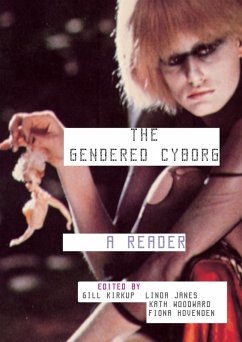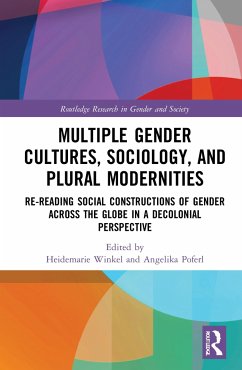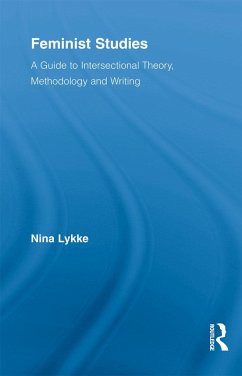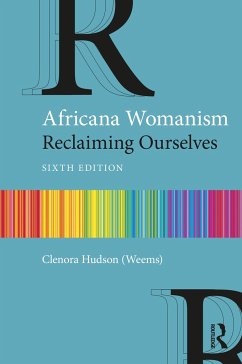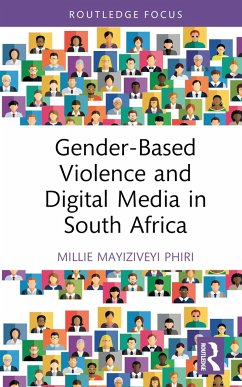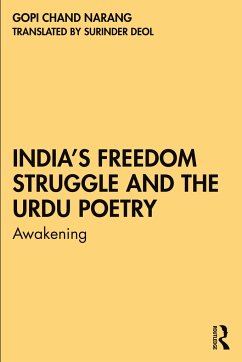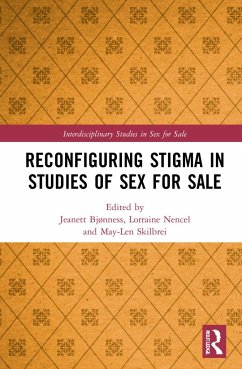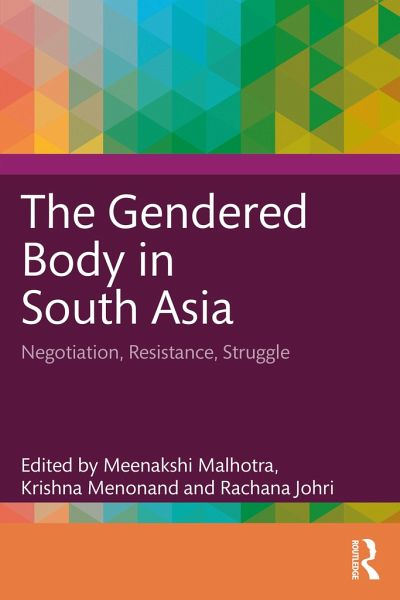
The Gendered Body in South Asia
Negotiation, Resistance, Struggle
Herausgegeben: Malhotra, Meenakshi; Menon, Krishna; Johri, Rachana
Versandkostenfrei!
Versandfertig in 6-10 Tagen
43,99 €
inkl. MwSt.

PAYBACK Punkte
22 °P sammeln!
This book situates the discourse on the gendered body within the rapidly transitioning South Asian socio-economic and cultural landscape. It critically analyzes gender politics from different disciplinary perspectives including psychoanalysis, post-structuralism, post-colonialism and law among others.Enriched by contributions from well-known South Asian feminist scholars, this book discusses themes such as democracy and dissent, citizenship and violence and how the female body has historically been used in these discussions as a shield and a weapon. It also focuses on technology and misogyny, ...
This book situates the discourse on the gendered body within the rapidly transitioning South Asian socio-economic and cultural landscape. It critically analyzes gender politics from different disciplinary perspectives including psychoanalysis, post-structuralism, post-colonialism and law among others.
Enriched by contributions from well-known South Asian feminist scholars, this book discusses themes such as democracy and dissent, citizenship and violence and how the female body has historically been used in these discussions as a shield and a weapon. It also focuses on technology and misogyny, the politics of veiling and unveiling, the body of the Muslim women in contemporary India as well as bodies which are marginalized or labelled transgressive or monstrous. The chapters in the volume showcase the complexities, convergences and divergences which exist in the conception and understanding of the gendered body, sexuality and gender roles in different socio-cultural spaces in South Asia and how women negotiate these boundaries.
Topical and comprehensive, this book will be useful for scholars and researchers of gender studies, sociology, political sociology, social anthropology, cultural studies, post-colonial studies and South Asian studies.
Enriched by contributions from well-known South Asian feminist scholars, this book discusses themes such as democracy and dissent, citizenship and violence and how the female body has historically been used in these discussions as a shield and a weapon. It also focuses on technology and misogyny, the politics of veiling and unveiling, the body of the Muslim women in contemporary India as well as bodies which are marginalized or labelled transgressive or monstrous. The chapters in the volume showcase the complexities, convergences and divergences which exist in the conception and understanding of the gendered body, sexuality and gender roles in different socio-cultural spaces in South Asia and how women negotiate these boundaries.
Topical and comprehensive, this book will be useful for scholars and researchers of gender studies, sociology, political sociology, social anthropology, cultural studies, post-colonial studies and South Asian studies.





